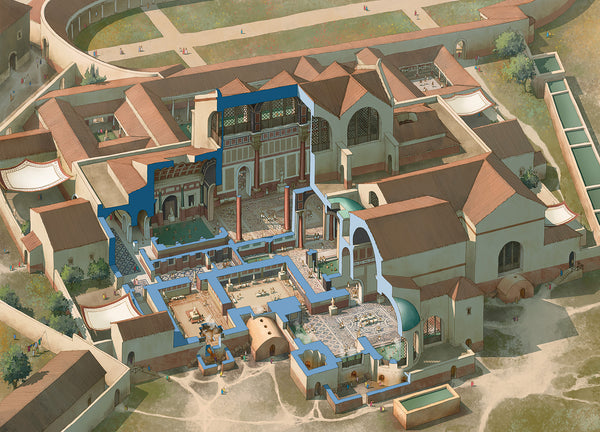SUBMISSIONS
Authors can send a proposal by email to editor@ancienthistorymagazine.com.
We prefer proposals that contain the following parts (if possible)
- A summary of the article (approximately 250 words). What will you discuss? What will be your point of view?
- A table of contents, with a short summary of every section.
- A short list of the most important sources that will be used
- A list of possible illustrations or photos that you would like to add to the article (we can provide some illustrations and photos if necessary; keep in mind that we can only use photos of a certain quality and resolution).
- An estimate of the length of the article.
Don’t write an entire article for a proposal. After all, your proposal might not be published, at least not at that moment. If your article is being published (the editor in chief will decide on that after the proposal deadline for an issue) you have three months to finish it, so time will not be a problem.
The following guidelines should be observed when writing for Ancient History
- Articles are written for a large audience, interested in ancient history. This means that the article should be both informative and based on modern academic research, but written in a smooth and easily accessible style.
- Be original. Captivate the reader with an interesting narrative. A story concerning real people from the ancient world or a recreation of daily life is more interesting than a digression on literary sources or a detailed account of a scientific debate (except when the topic of your suggested article is a particular debate).
- However, don’t ignore the sources or ongoing debates altogether. Some well-chosen quotations and references can contribute substantially to the quality of the article.
- Don’t write in a pedantic manner; readers don’t need to know how much you know about every little detail. More specialized names and terms may be used, but don’t overdo it. Keep in mind that not everybody is familiar with the terminology.
- Don’t be too elaborate. Decide beforehand what you would like to write about and stick to this in your account. Any extra information not directly related to the main story can be put in a sidebar if necessary.
- We don’t use footnotes in our magazine. Any references to sources should be incorporated in the article itself. You can list a few important works on the subject in a ‘Further reading’-textbox.
- The article itself should roughly number between 2000-4000 words. This is only an approximation. The exact number of words will be decided upon by the editor in chief, after the final decision on the issue’s contents is made. This depends on the article’s topic, the section to which it will belong, and the content of the other articles in the issue.
- Your command of the English language should be excellent, at least within the article itself. If spelling and grammar is insufficient, the article will not be accepted for publication.
Sections
Ancient History consists of a number of sections, which will determine on what sort of topic the article should focus. Authors can submit a proposal for one of the following sections:
- Introduction: an introduction to the main theme, with background information on the time, place and important events.
- Main theme: all articles directly related to the main theme. This can be just about anything, as long as it fits in the theme. For example, if the theme covers food and dining, articles could cover food manufacture, dining habits, transport, a religious or philosophical perspective on food, or even recipes for reconstructing ancient dishes!
- The source: focuses on primary/important sources on which (some of) the theme’s information is based.
- Special: This article can cover just about any ancient history topic that isn't related to the theme of the issue
- How do they know: This section explains how we know what we do about an ancient history topic, with an analysis of the sources, a look at how scholarly thinking on the topic has evolved, and how we have come to the modern, currently accepted conclusion regarding that subject.
- The number: This short piece uses a number as its starting point to discuss a topic in ancient history where that number plays a significant role.
Payment and rights
Authors will receive 10 eurocent per word (except for reviews). The editors of Karwansaray preserve for themselves the right to change layout and content of articles as they deem necessary.

